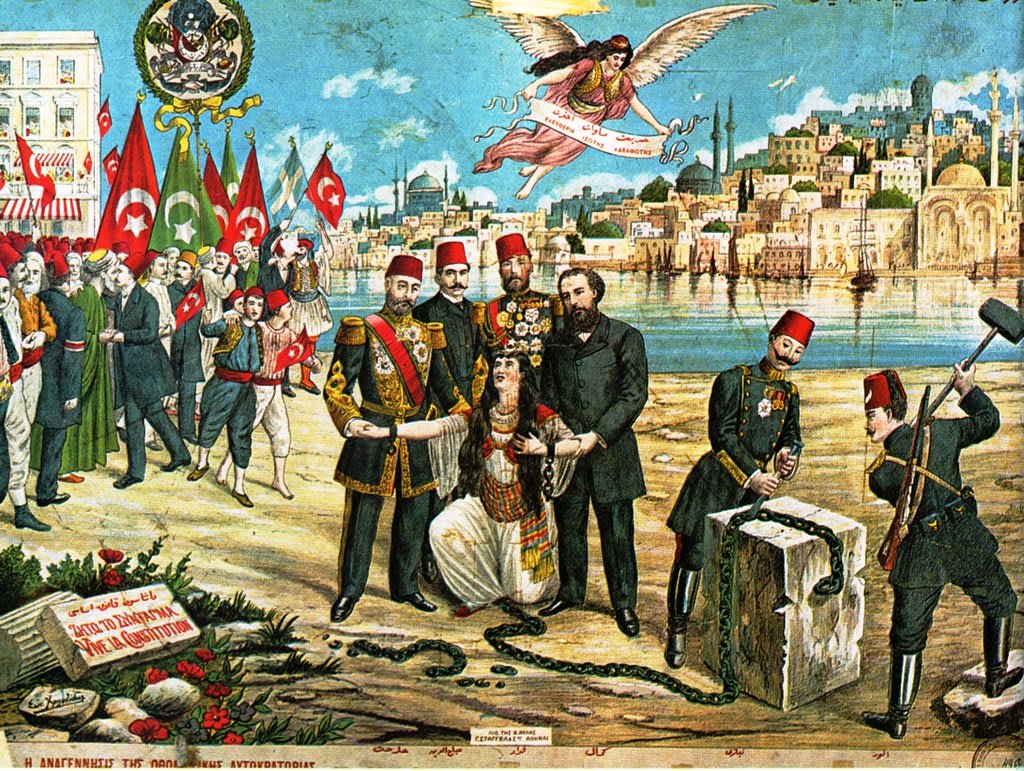The Rise and Fall of the Ottoman Empire
A Six-Century Journey of Conquest, Culture, and Decline

The Ottoman Empire was one of the most powerful and influential empires in history, spanning over six centuries and three continents. Its story began in the late 13th century when a Turkish tribal leader named Osman established a small principality in northwestern Anatolia. Under his leadership and that of his successors, the Ottoman state grew in size and power, conquering neighboring territories and expanding its borders.
One of the key factors that contributed to the success of the Ottomans was their military strength. They were known for their expert use of cavalry and archery, and their soldiers were highly trained and disciplined. Perhaps the most famous of the Ottoman military forces were the Janissaries, an elite force of soldiers who were trained from a young age and were loyal only to the sultan. With the help of the Janissaries, the Ottomans were able to conquer Constantinople in 1453, marking the end of the Byzantine Empire and the beginning of a new era for the Ottomans.
Over the next few centuries, the Ottomans continued to expand, conquering new territories in Europe, Asia, and Africa. They fought against the Safavid Empire in Persia, the Mughal Empire in India, and the Portuguese in the Indian Ocean. At its height, the Ottoman Empire controlled much of southeastern Europe, western Asia, and northern Africa, making it one of the largest empires in history.
The Ottomans were also known for their contributions to art, architecture, and culture. The empire became a center of artistic and intellectual activity, with scholars, artists, and architects flocking to Istanbul to take part in its cultural life. Some of the most famous buildings in the world were constructed during this period, including the Blue Mosque and the Topkapi Palace in Istanbul. The Ottomans also had a rich tradition of storytelling, with tales of love, war, and adventure being passed down from generation to generation.
However, despite its many achievements, the Ottoman Empire began to decline in the 18th century. The empire faced economic, social, and political challenges, including corruption, inflation, and the rise of nationalist movements in various regions. The Ottomans struggled to keep up with the changing world, and their military technology fell behind that of their European rivals.
In the late 19th century, the Ottoman Empire faced a series of major crises that would ultimately lead to its downfall. These included a war with Russia, a rebellion in the Balkans, and the rise of Arab nationalism. The Ottomans were unable to cope with these challenges, and the empire began to unravel.
As the Ottoman Empire continued to grow in size and power, its leaders faced the challenge of ruling over a diverse and multiethnic population. The Ottomans were known for their policy of toleration towards different religious and ethnic groups, which allowed them to maintain control over their vast territories. Non-Muslims were allowed to practice their own religions and were often granted autonomy in their own communities.
However, this policy of toleration was not always consistent, and there were times when minorities were persecuted or discriminated against. The most notable example of this was the Armenian Genocide, which occurred during World War I. The Ottomans accused the Armenian minority of collaborating with the enemy and launched a campaign of violence and deportation that resulted in the deaths of up to 1.5 million Armenians.
The decline of the Ottoman Empire was also marked by a growing sense of nationalism among its various ethnic groups. The empire was home to many different peoples, including Turks, Arabs, Greeks, Armenians, and Kurds, each with their own language, culture, and history. As the Ottomans struggled to maintain control over their territories, these groups began to assert their own identities and demand greater autonomy or even independence.
One of the most significant challenges to Ottoman rule came from the Balkan region, where a series of nationalist movements emerged in the 19th and early 20th centuries. Serbia, Bulgaria, Greece, and Montenegro all declared independence from the Ottomans during this period, weakening the empire's grip on southeastern Europe.
The Ottoman Empire also faced external threats from European powers, who sought to exploit its weakness and expand their own influence in the region. Russia was particularly aggressive in its efforts to undermine Ottoman rule, and the two empires fought a series of wars in the 18th and 19th centuries.
By the early 20th century, the Ottoman Empire was in a state of decline, facing economic, social, and political challenges that it was unable to overcome. In 1914, the empire entered World War I on the side of Germany and Austria-Hungary, hoping to secure its position in the Balkans and the Middle East. However, the Ottomans were quickly overwhelmed by the superior military technology of the Allies, and by 1918, their empire was in shambles.
The Ottoman Empire officially came to an end in 1922, when the last sultan, Mehmed VI, was deposed and a republic was declared. The new government, led by Mustafa Kemal Ataturk, embarked on a program of modernization and secularization, seeking to create a new, democratic Turkey that was free from the legacy of the Ottomans.
Despite its many achievements, the Ottoman Empire remains a controversial and contested period of history. Its legacy is marked by both glory and tragedy, as well as complex questions of identity, nationalism, and religion. Nevertheless, the story of the Ottoman Empire is a fascinating and important chapter in the history of the world, one that continues to inspire and challenge us to this day.
In 1922, the last sultan of the Ottoman Empire was deposed, and the country became a republic. The legacy of the Ottomans, however, lives on in the many cultures and traditions that were shaped by their rule. The Ottomans were a remarkable civilization, one that left an indelible mark on the world and whose influence can still be felt today.
In conclusion, the Ottoman Empire was a remarkable civilization that shaped the course of world history. Its rise to power was fueled by military strength, cultural achievements, and territorial expansion. However, its decline and eventual collapse were brought about by a combination of internal and external pressures that the Ottomans were unable to overcome. Nevertheless, the Ottomans' legacy lives on, and their contributions to art, architecture, culture, and military strategy continue to be studied and celebrated to this day.






Comments
There are no comments for this story
Be the first to respond and start the conversation.